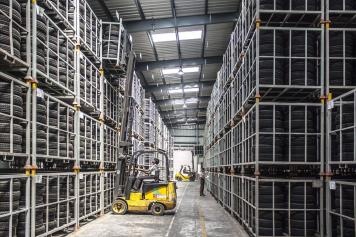Most NA deputies expressed their opinion that the law was difficult to put into effect because the foundation for implementation had yet to be perfected. They also said home owners should not be subject to tax payments.
Deputies did not agree with Article 6 of the draft law which regulates that the land and house tax should be calculated based on the housing and land surface as written on the land-use rights and home ownership certificates.
In cases where no certificate exists, the basis for calculation would be the actual area of the land and house that people are using.
According to the deputies, the regulation was not feasible because the procedure for granting the certificates was very slow. Many people did not have land-use rights and house ownership certificates.
Calculating the actual areas that people were using was also difficult and costly. If final calculations were based on measurements unofficially taken by people at their own initiative, the State budget would suffer due to inexact figures. However, it was time-consuming and costly for the State to take the measurements because of staff shortages.
A strict land and house management system with the capability of linking statistics from different localities and which could be updated regularly was required to impose a progressive tax on people who have many land lots in different localities, they said.
This type of system does not currently exist in Viet Nam.
The draft law also regulates that people who own a house worth more than VND500 million (US$27,800) must pay a tax. However, there is no authority in charge of assessing the value of houses.
Deputy Nguyen Thi My Huong from Da Nang said that it was necessary to perfect the policy system, ensure the precision of land measurement and surveillance, and improve the efficiency of tax management. If these steps were taken, the law would be feasible.
Deputies agreed with the NA Committee for Finance and Budget Affairs that home owners should not be subject to tax payments.
Their reasoning was that owning a home was part of people’s long-term efforts to accumulate wealth. People already have to comply with tax obligations, such as personal income tax, while saving enough money to build or buy a house.
In the context of current economic difficulties, imposing an additional tax would cause problems for people, they added.
Some NA deputies said that a tax should be imposed on land, not houses.
Deputy Tran Du Lich from HCM City said that it was not time to collect taxes on houses. With the current average income per capita, the State should make efforts to ensure that each individual had a house to stabilise his or her life, he said.
"We should not mention this issue again in the next 10 years," he added.
Deputy Nguyen Thi Nguyet Huong from Ha Noi also asked for further consideration before implementing the law because home ownership was a basic right for everyone. The State should create all conditions for them to realise their right.
"Most people don’t have a high income, so if the tax was imposed on houses, millions of people would be affected," she added.
Also on Saturday, deputies discussed the draft law on trade arbitration.
Most deputies agreed it was necessary to promulgate the law in the context of economic integration and to change the law’s name to "Law on Trade Arbitration" from Law on Arbitration.
Criteria for arbitrators and arbitration fees were also discussed























